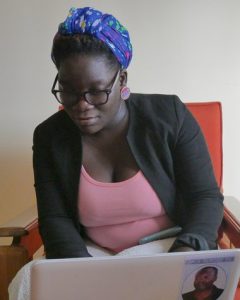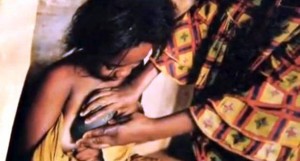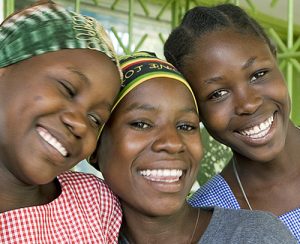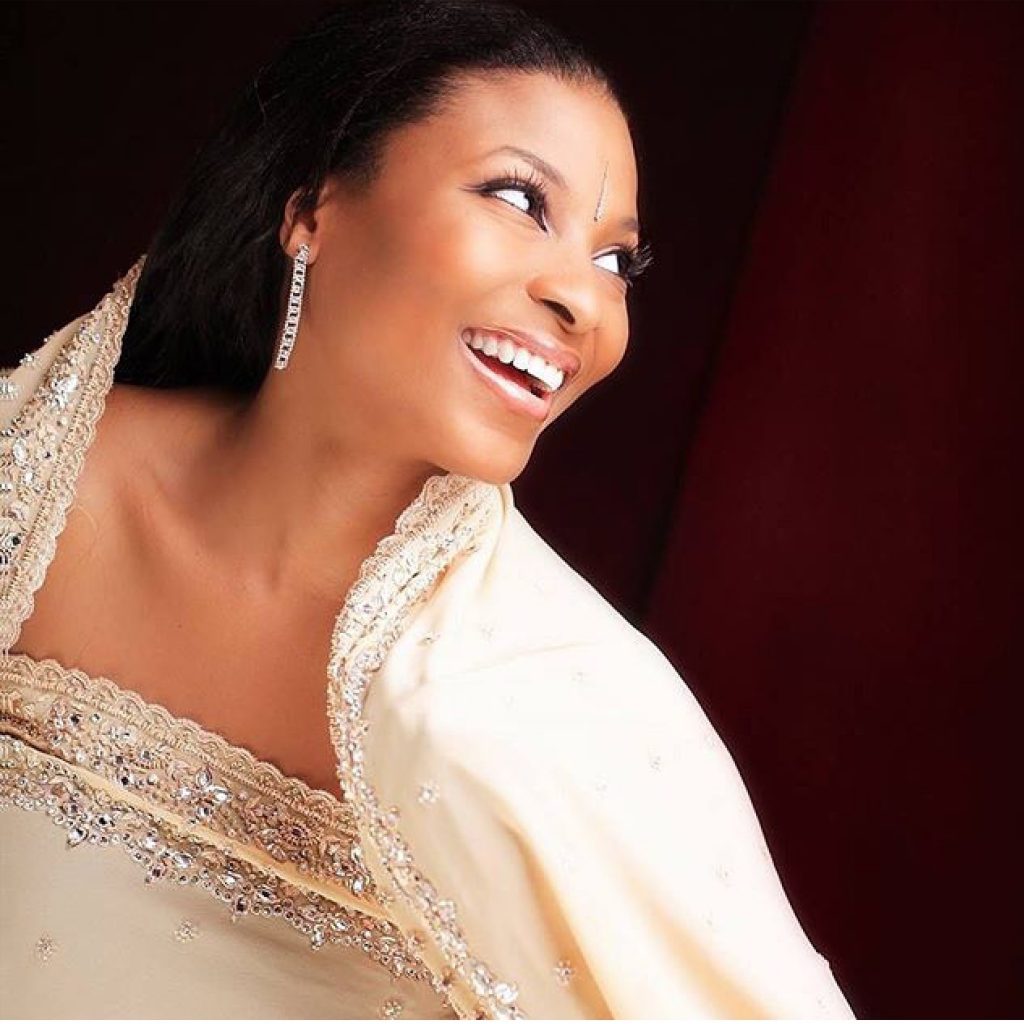In class, she sat quietly on the front row with two boys. She was not talkative and often kept to herself. The boys occasionally picked on her because she looked a little older than her age. One day, the teacher asked her to draw an illustration on the blackboard, and as she walked to the front of the class, she heard giggles – then full blown laughter from the rest of the class.

She didn’t know what was wrong, neither did the teacher. As the teacher tried to no avail to get the class quiet, he realised that it was something at the back of the girl’s dress that was making them laugh. It was a red stain on her dress. It was that time which girls dread-menstruation. She was only thirteen. As she looked on horrified, the boys behind her desk pointing fingers at her and laughing hysterically, she ran out of the class crying in embarrassment.
This is probably every girl’s nightmare, being bullied for having a period. In her poem ‘Let me be’, 17-year-old Sharon Kirezi Bayingana counsels girls to be who they are – unapologetically – and also, be comfortable in their own skin.
The teenager tackles aspects like adolescence and how the toughest period in a young adult’s life has taken a toll on girls, leaving them with a longing for acceptance by their peers. It also points out how girls have to deal with what is sadly seen as the ’embarrassing’ menstrual period, amongst other factors.
Bayingana observes that girls face alot of challenges growing up, pointing out bully acts like ‘fat’ shaming, something that actually affects one’s esteem.
The young poet believes that the world would be a better place if only people would accept others the way they are. Her wish is that her poem sets a good example and becomes a source of inspiration for young girls who are struggling with accepting and loving who they are.
“Actually, our culture has played a role in this in a way. Girls grow up thinking that being humble means being quiet, which isn’t the case. I consider myself a humble person because I respect people and know who to listen to but I am also not afraid to do what I want because I know what it is exactly,” she explains.

Bayingana adds that being confident doesn’t necessarily mean going astray, rather, focus on what really matters, take charge and do not let other people decide who you are or what you should do.
She also points out that there is no formula to being confident since it’s just something one decides upon and that girls should learn how to accept and handle criticism.
17-year-old Cheyenne Muvunyi believes that the lack of self esteem amongst young girls stems from different things ranging from the society we live in to the fact that most girls mind too much about what others think of them.
“I believe lack of self esteem stems from different things, there is the element of not knowing who you are and the fear of being judged,” she says.
Muvunyi adds that it’s that fear that wears down self confidence over time, and that without confidence, self esteem cannot exist.
20-year-old Maureen Mutoni says she has seen girls go through havoc just because their boobs are too big or that they don’t have a slimmer figure.
She recalls some girls shying away from male classmates because they thought boys found them unattractive.
“Girls tend to think that being short or even too slim is something to be bothered about, that’s why most of them in high school lack confidence. Others are fat and they hate themselves for that, this shouldn’t be the case,” she says.
Mutoni, however, says that regardless of one’s weight, height or colour, girls should have a sense of self worth and consider themselves loved.
“I think every girl should have confidence and appreciate how she was created. They should consider themselves beautifully made, just like I do,” Mutoni says.
What’s behind low self esteem in girls?

According to Annet Mukiga, a gender activist, the factors that affect young girls’ esteem are interlinked that it goes beyond their bodies.
She also seconds the thought that it’s the social norms and perceptions that guide what a good girl is supposed to be, for example, a good girl is not supposed to speak out loud and that she should be humble and reserved.
“As you can imagine, once you are brought up with this line of thought, you are not encouraged to be who you are and to reach your full potential but you are shaped the way society expects you to be – you even strive to fit in,” Mukiga says.
She also cites gender-based hostility, which makes girls and women insecure, they do not feel safe even with themselves and this definitely affects their self esteem.
The idea of what makes a girl or woman beautiful also puts girls in a position to struggle to measure up to that beauty scale, according to Mukiga.
“If a girl feels she doesn’t measure up to that, her self esteem will suffer. This can lead to risky behaviours like having sexual relationships with older men to get money to buy things that they think will help with the way you look, for example, lotions, makeup and perfume,” she points out.
Another critical shaper, Mukiga says, is the ‘silence’ around sexuality issues, and this relates very closely to girls and their bodies.
Mukiga says that girls are normally judged harshly when it comes to ‘exploring their sexuality’ while boys will behave the same way and it is tolerated.
She wonders how one will become confident with their body and also, their sexuality, when society has already put them in a box to be judged.
“Often, it’s girls who suffer the consequences… . We need to change these discriminatory social norms and the way society judges girls and women in general in order to encourage women to achieve their full potential and not feel inferior.
“Empowerment and affirming girls’ potential would go a long way in addressing this. Recognising the special needs of girls, for example, the challenges that come with maturing like menstruation and also, ensuring that they all have access to pads, should be invested in,” Mukiga concludes.
Rosine Mwiseneza, Ms Geek 2016, explains that kids who are bullied at school lose confidence and this can make them even fail academically.
She says some of the students bully others because of how they look, what they wear, and even how they speak. This makes the victims nervous because they keep on regretting why they are not built the same way their peers are.

Mwiseneza is of the view that a girl’s confidence is something that needs grooming, starting from a tender age, arguing that young girls are not superficial. Giving them the right sense of direction earlier can help a lot in building self esteem awareness.
“If possible, girls can receive some courses at the lower education level related to self esteem awareness because just like any other aspect that is essential to society, this needs to be attended to also,” Mwiseneza suggests.
“Better still, encourage girls to join sport activities that can help them mingle with others. Encouraging young girls to participate in competitions, like the ‘Spelling Bee’ contests in the US, can help many young girls,” she adds.
How do parents help?
“I always tell my children to live by one rule, love God, love yourself and love others. One can never go wrong with this because a contented soul builds a contented body,” Dorine Ayinebyona, a mother and dedicated wife, says.
Claudine Uwamahoro says that parents need to prepare their children for the cruel world by not over protecting them, adding that shielding them will only make it worse.
“I know this can be difficult because we want our children to be happy but this will not help them. Rip off the bandage while you arm them with tools of protection like control and self dependence,” Uwamahoro advises.
What can be done to help young girls embrace their body image?
Girls should focus on what they believe are their best features. If they feel that something is unusual with their bodies, they shouldn’t be too shy to ask health experts for assistance. It’s also important that they learn to dress according to their body shape, and not what is trending. It is also good to put in mind that they were created in God’s image, as such; they are beautiful in the Creator’s eyes. They should also engage in sports and stay fit.

